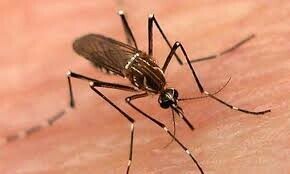
[ad_1]

PESHAWAR: The rising dengue incidence has raised the threat of an outbreak of the mosquito-borne disease in Khyber Pakhtunkhwa.
Fifty-three new dengue cases have taken this year’s tally of the infections in the province to 904, according to health officials.
“This new wave of infections has baffled authorities, who fear violent outbreaks, especially in Peshawar, which has reported 244 cases, the highest in the province,” an official told Dawn.
He said currently, 17 dengue patients were hospitalised, but most cases couldn’t be screened because they preferred treatment in their neighbourhoods, mostly from clinics run by unqualified medical practitioners.
Officials call for effective enforcement of action plan
“Peshawar is going the year 2017’s way when 20,000 dengue cases and 60 deaths were reported, overwhelming hospitals. In September alone, Peshawar recorded 192 cases, mostly from the areas, which were hit by outbreaks in 2017,” he told Dawn.
The other officials said of the 904 confirmed dengue cases, 761 were diagnosed in September only.
They said currently, the province had 357 active cases, while 547 patients had been discharged from hospitals after recovery from the infection.
The officials said the hospitals had so far admitted 127 cases but more people would need hospitalisation due to a spike in the incidence.
They said only two people had so far lost life to dengue in the province, but there was a need for the elderly and people down with other diseases to stay home, especially in evenings, to stay safe from mosquito bites.
The officials said like Peshawar district, Abbottabad, Hangu, Mansehra and Nowshera had emerged as hubs of the infection as they had recorded 114, 93, 80 and 79 cases, respectively.
They added that currently, dengue cases were reported in 25 districts, showing the disease was widespread, especially after the recent rains that left behind pools of stagnant water, major mosquito breeding sites.
The officials said the health department had been screening, testing and treating people for dengue but mosquito production continued to swell as the people resorted to storing water in uncovered pots.
They added that the residents of endemic areas had been asking the government to announce a schedule of loadshedding, so they could get water, but all their requests fell on deaf ears, prompting the people to store water for their daily consumption.
The officials said the government devised the Dengue Action Plan every year with the main point being the collaborative efforts among all relevant departments, but the people had no option but to store water, as they didn’t know about the time of power cuts.
They said the role of tehsil municipal committees in the elimination of standing water from their respective areas had also been the prime source of mosquito production.
The officials said dengue virus was present in the province and mosquitoes acted as carriers and transmitters.
They added that more than a dozen areas in Peshawar were reporting dengue cases and authorities were spraying insecticides and holding walks and meetings to scale up public awareness of the preventive measures, but the people couldn’t escape mosquitoes, mainly due to power breakdowns.
“In such circumstances, escaping mosquitoes is next to impossible. The government should effectively implement the Dengue Action Plan, 2024, before the situation snowballs into a major health crisis,” a health official told Dawn.
Published in Dawn, October 2nd, 2024
[ad_2]
Source link






